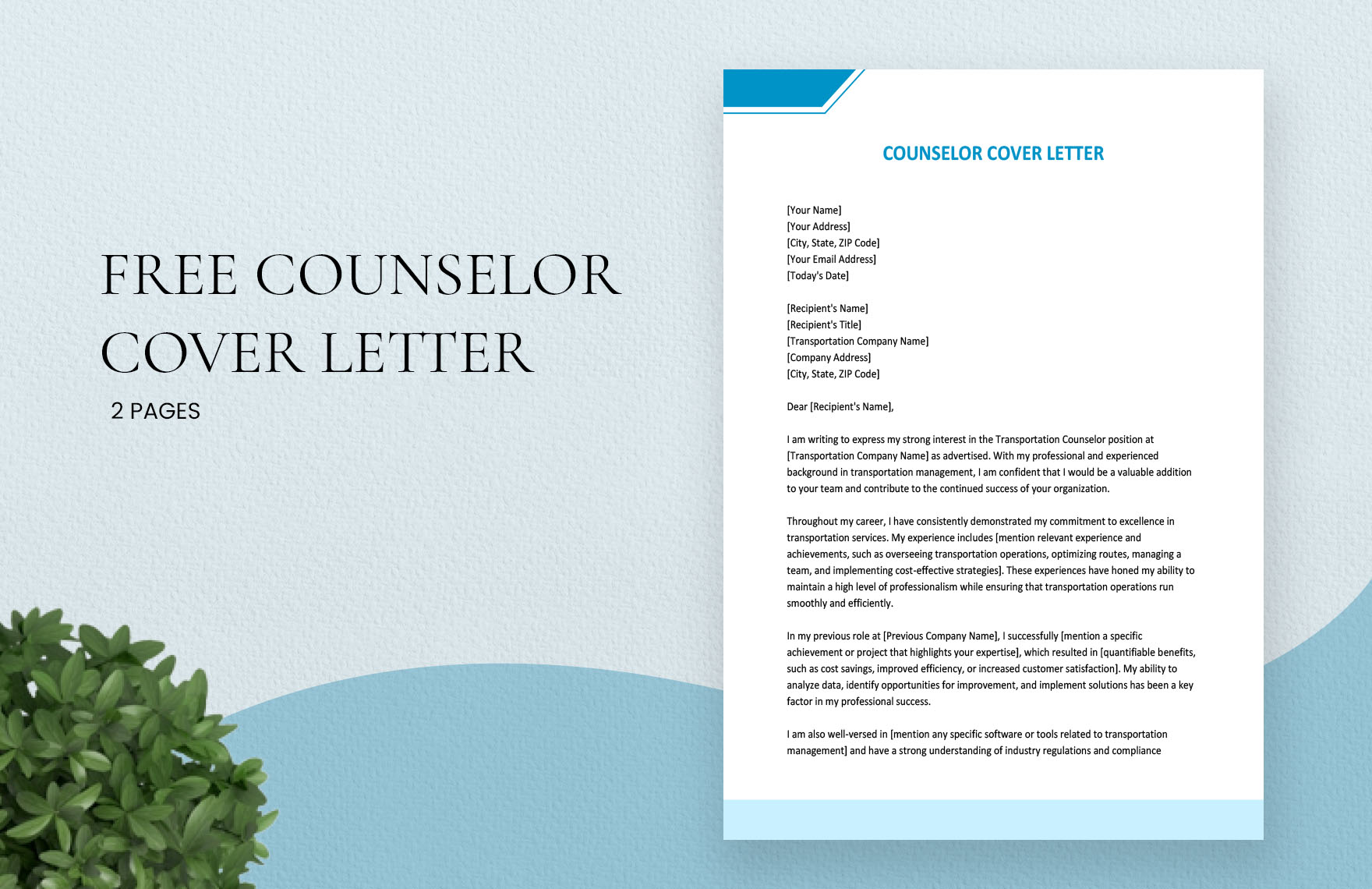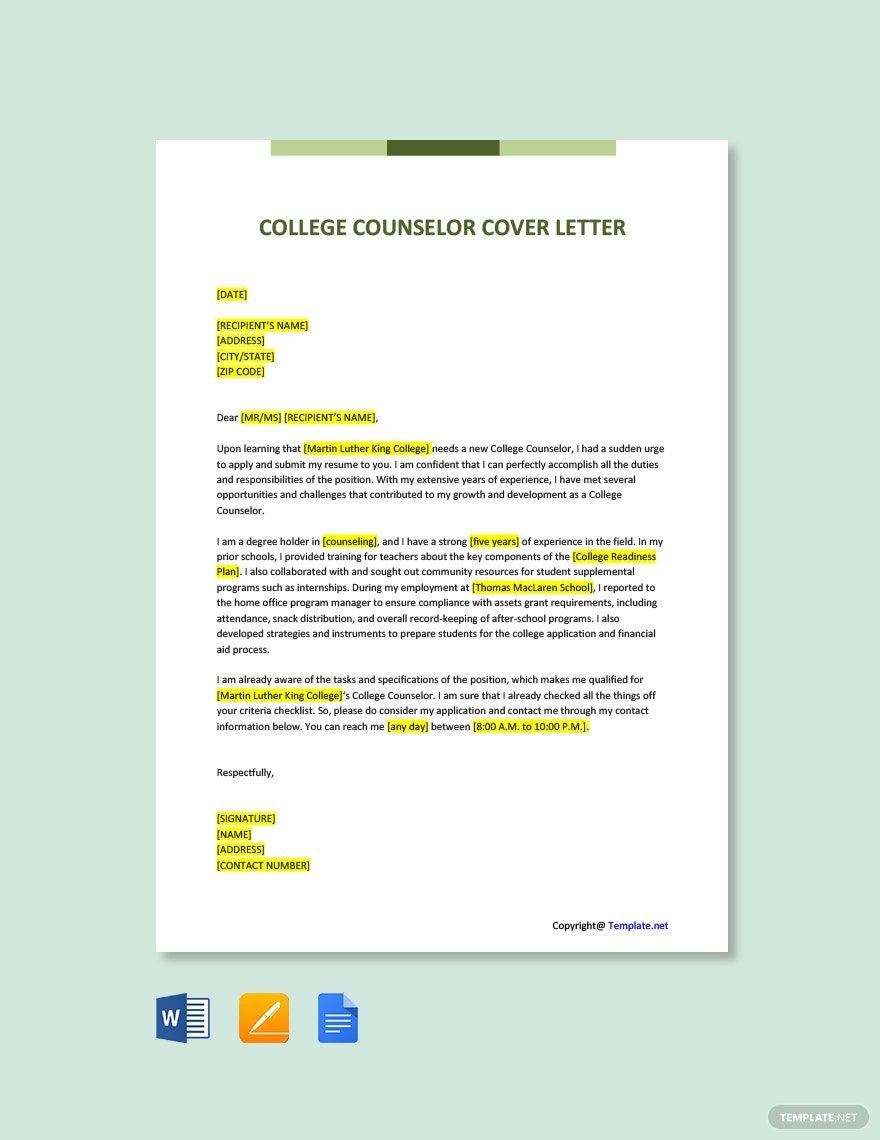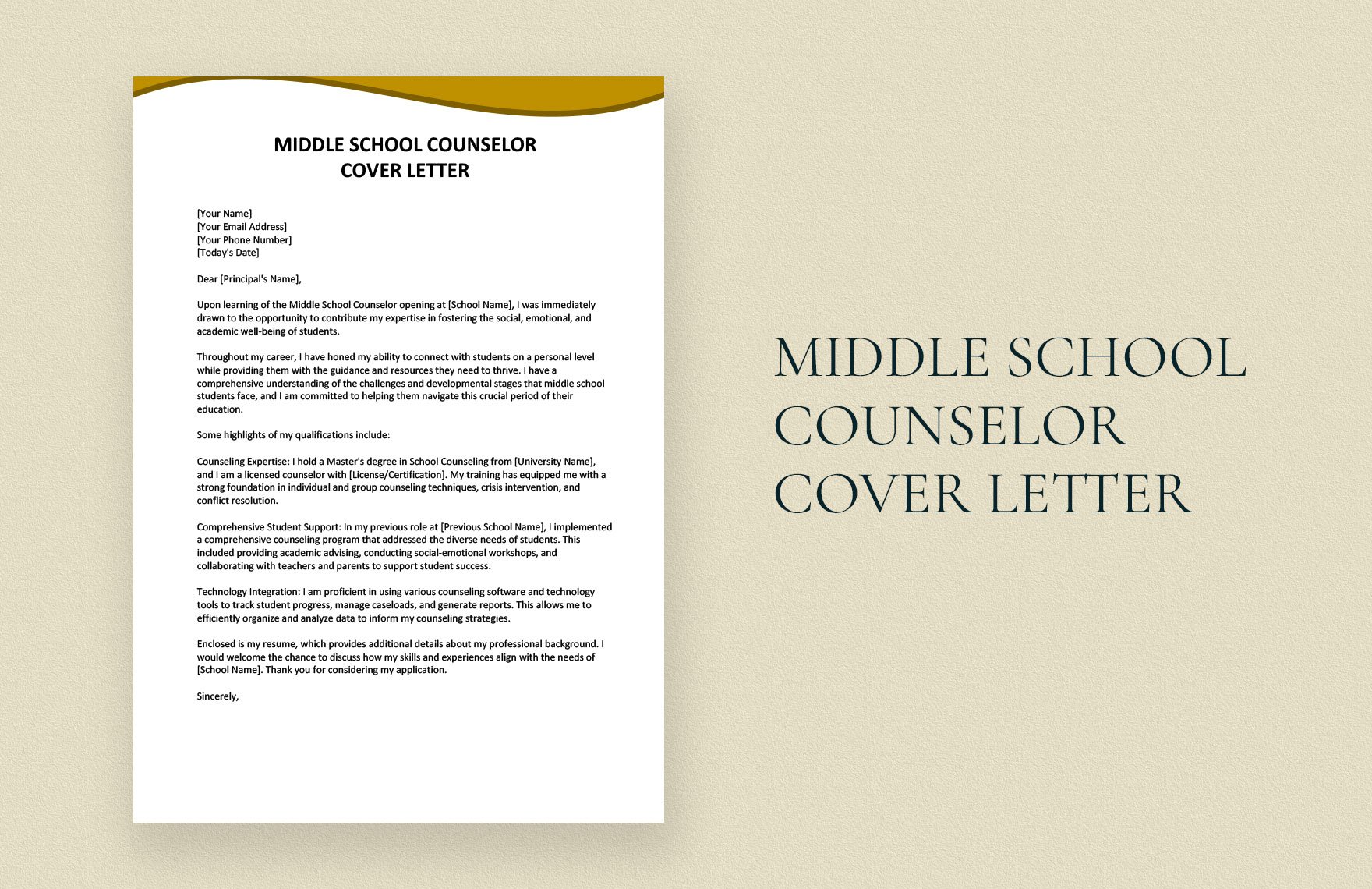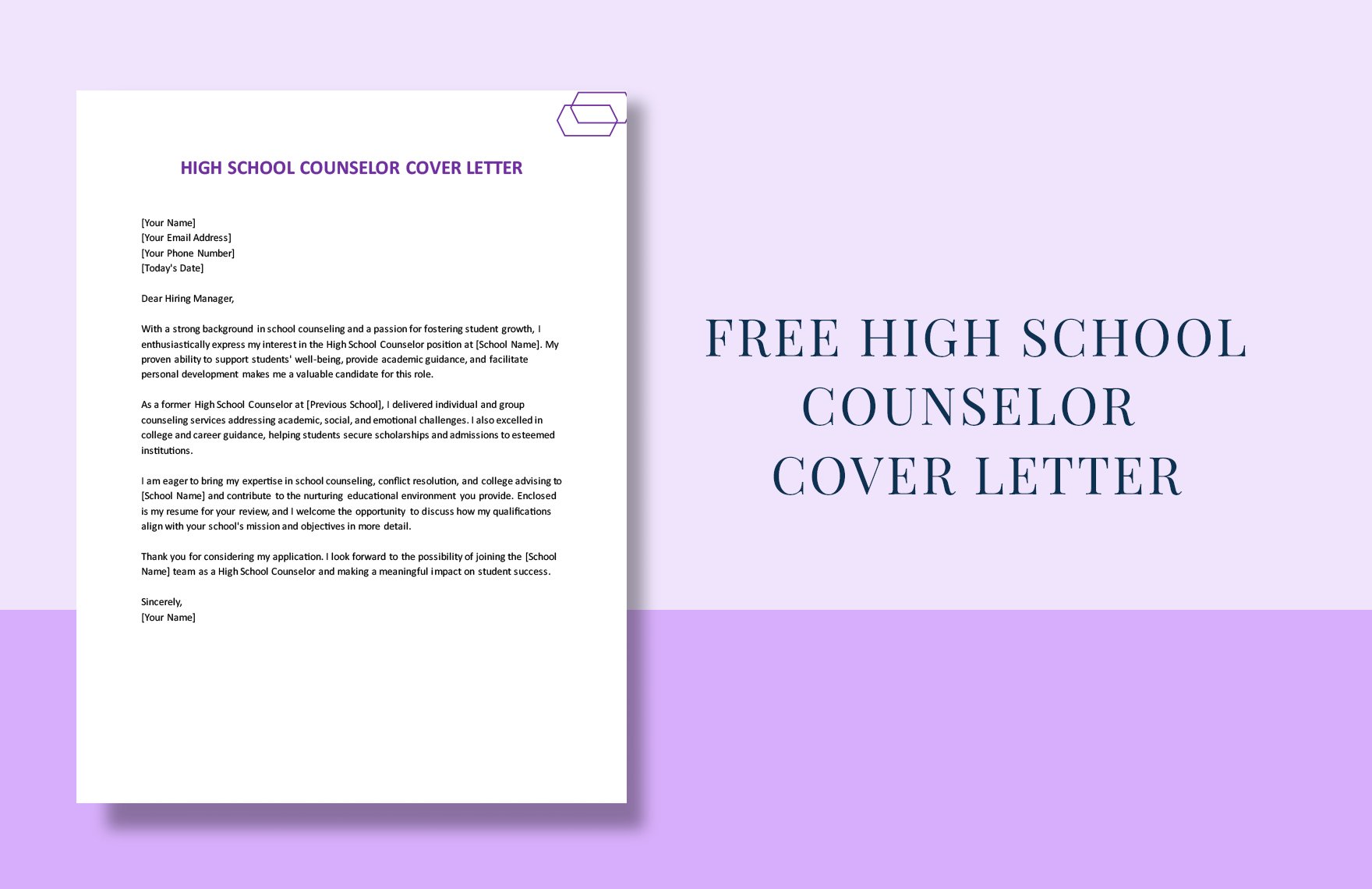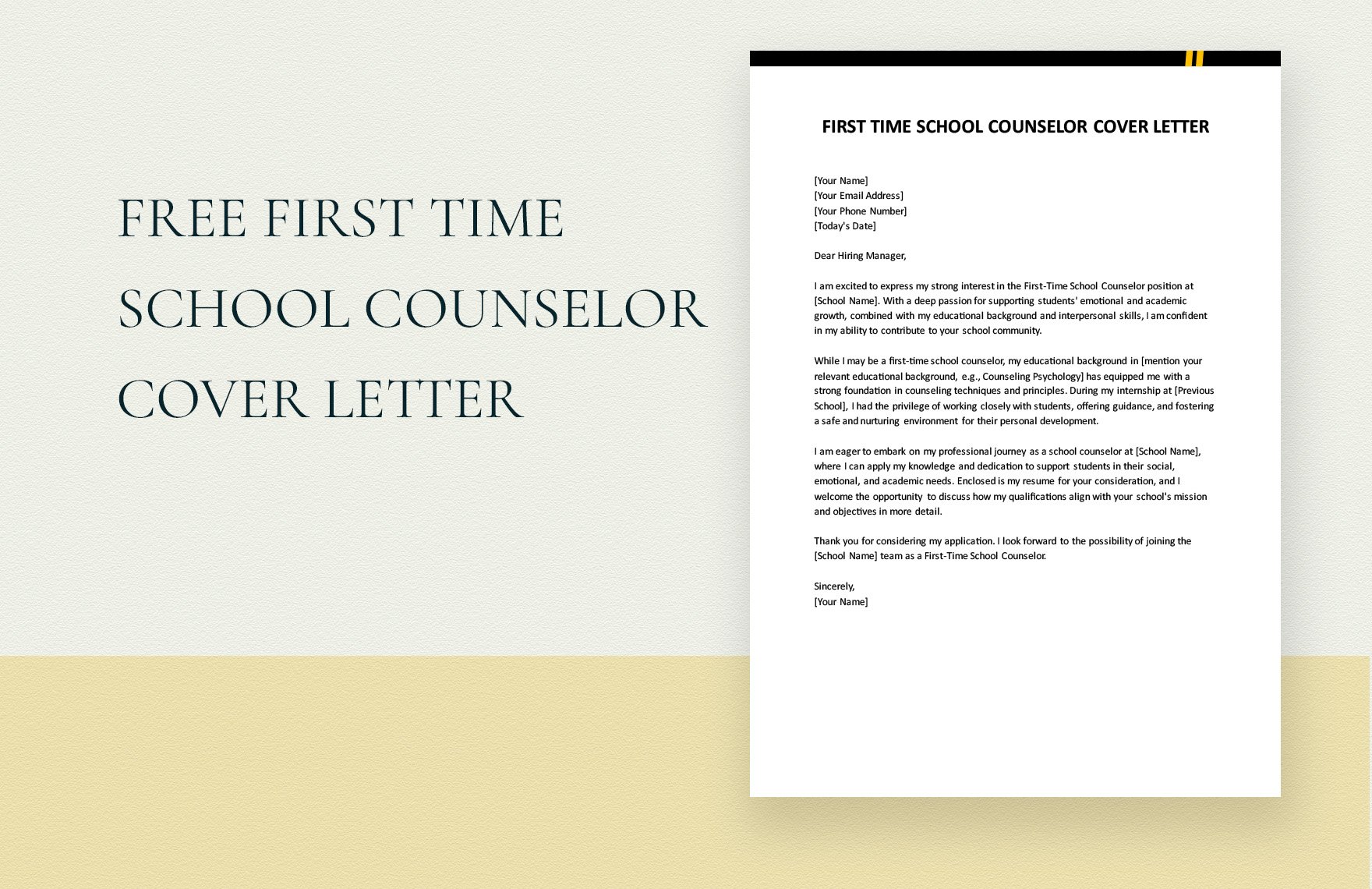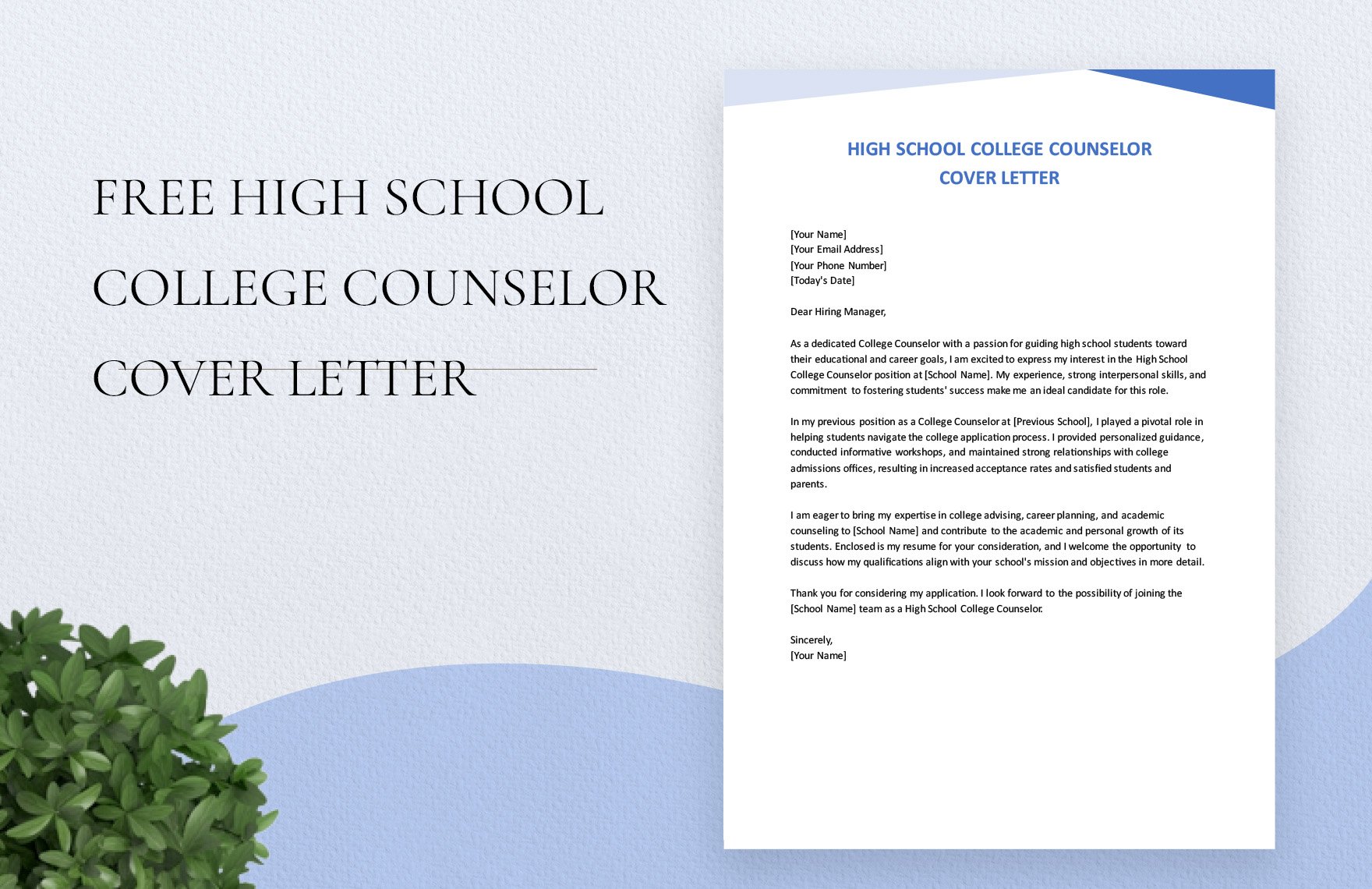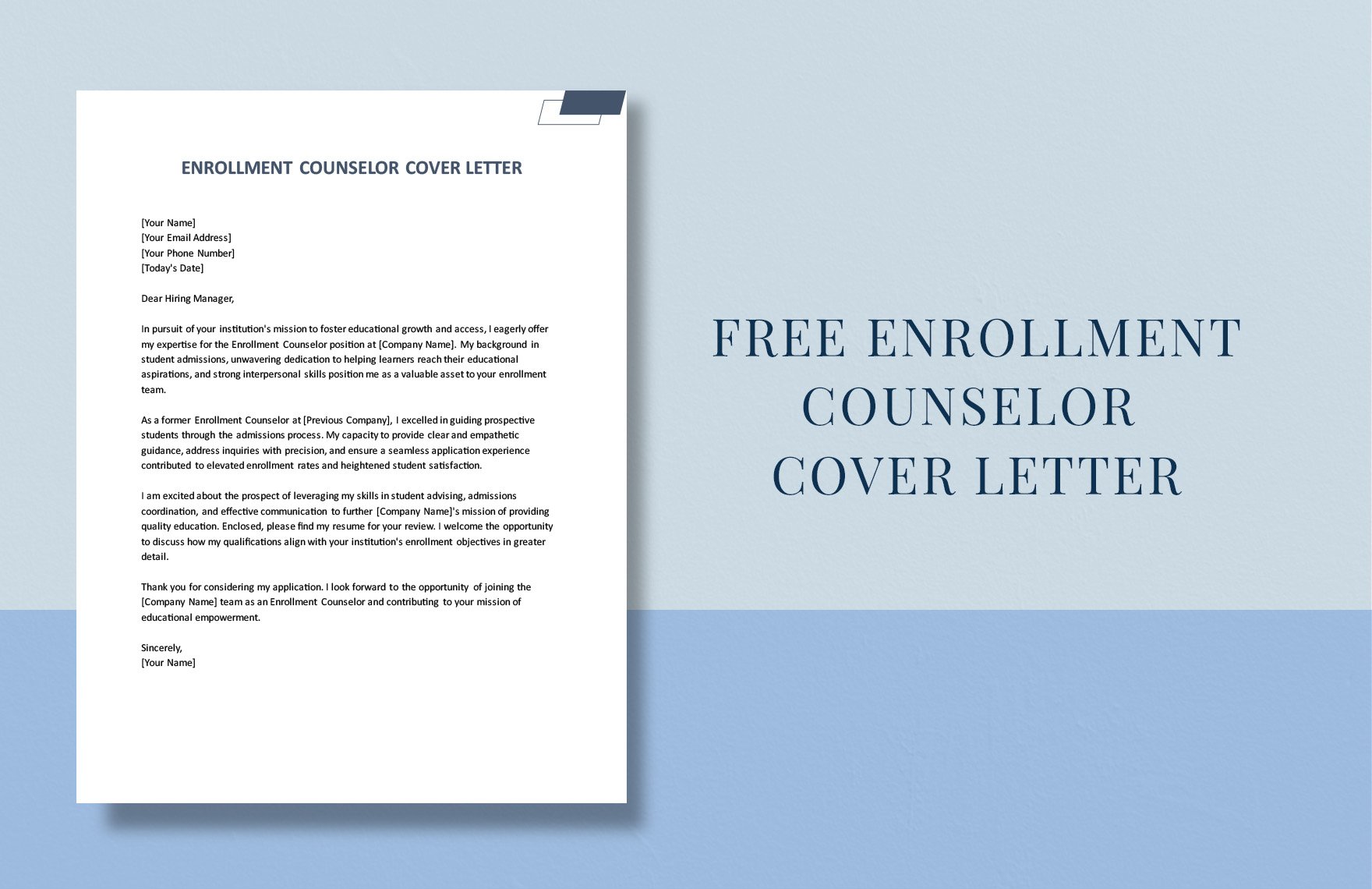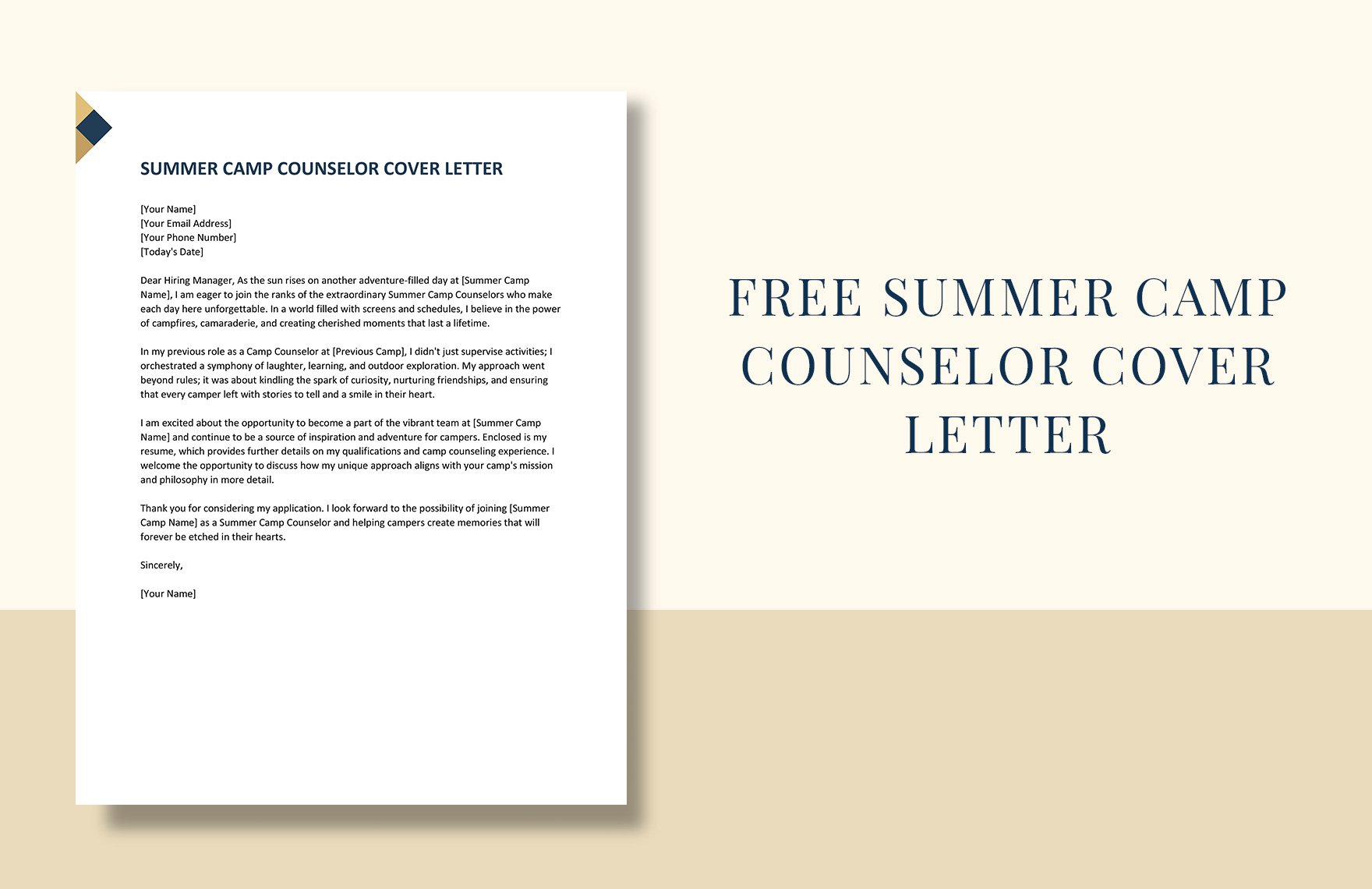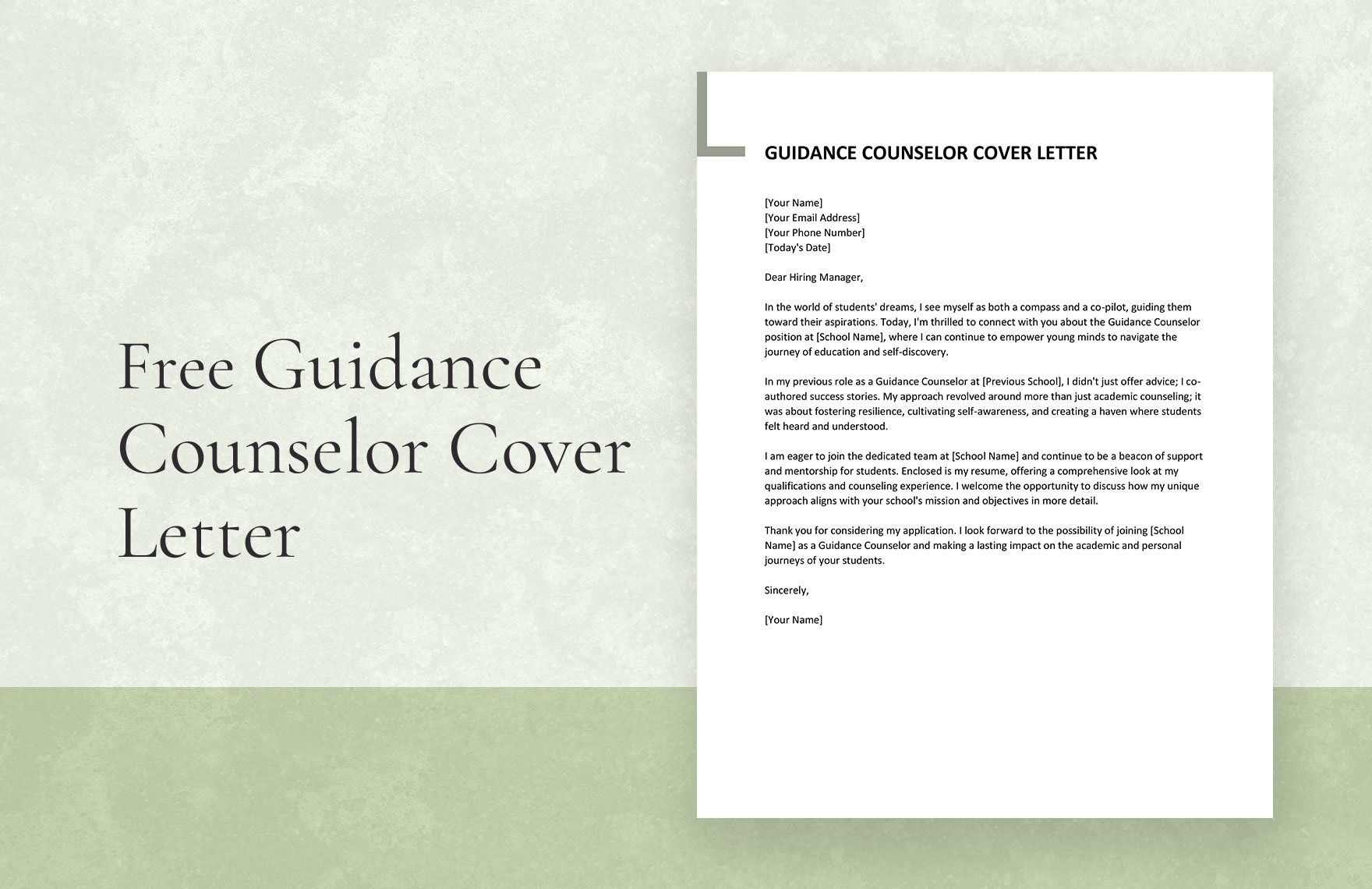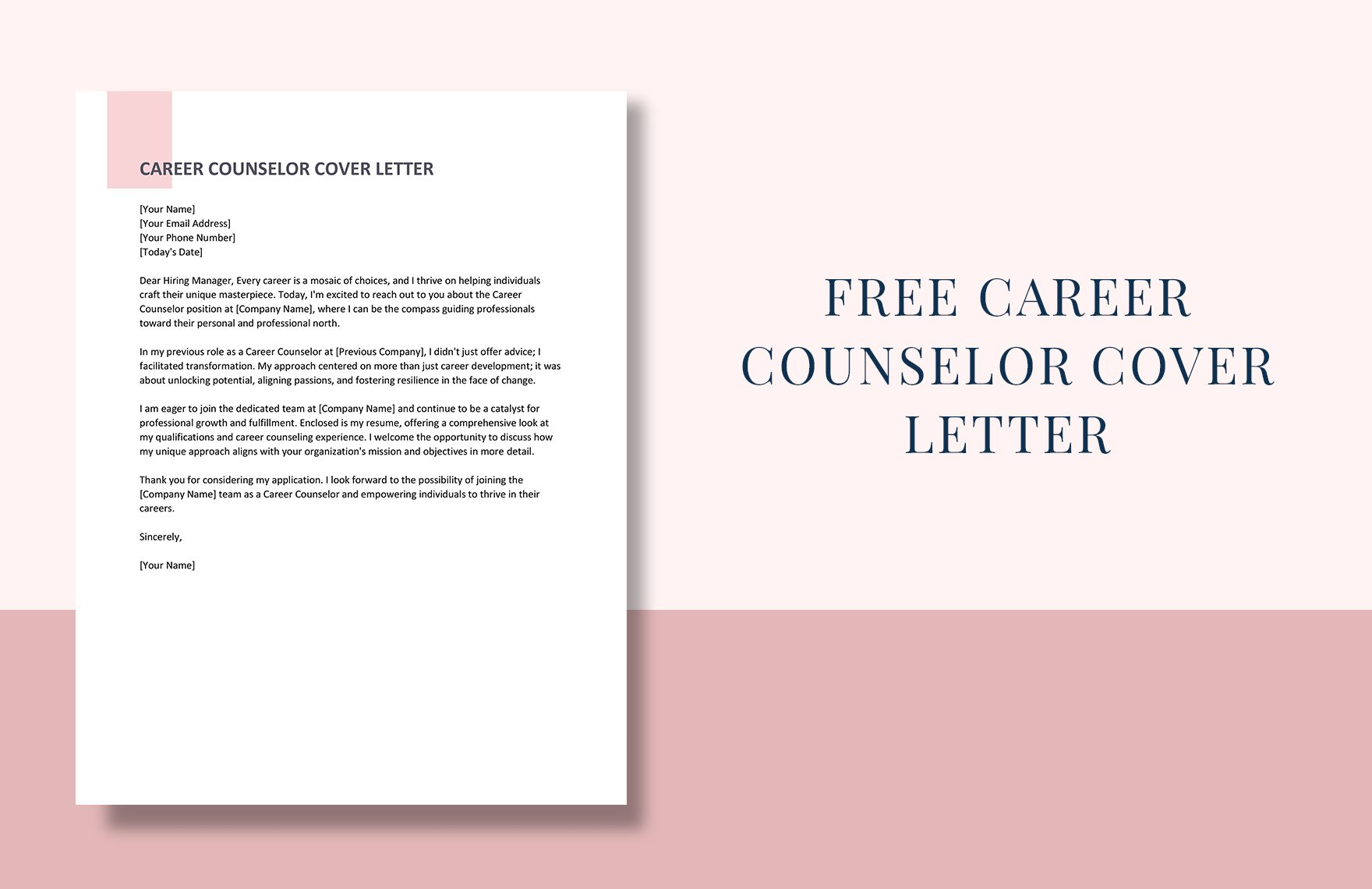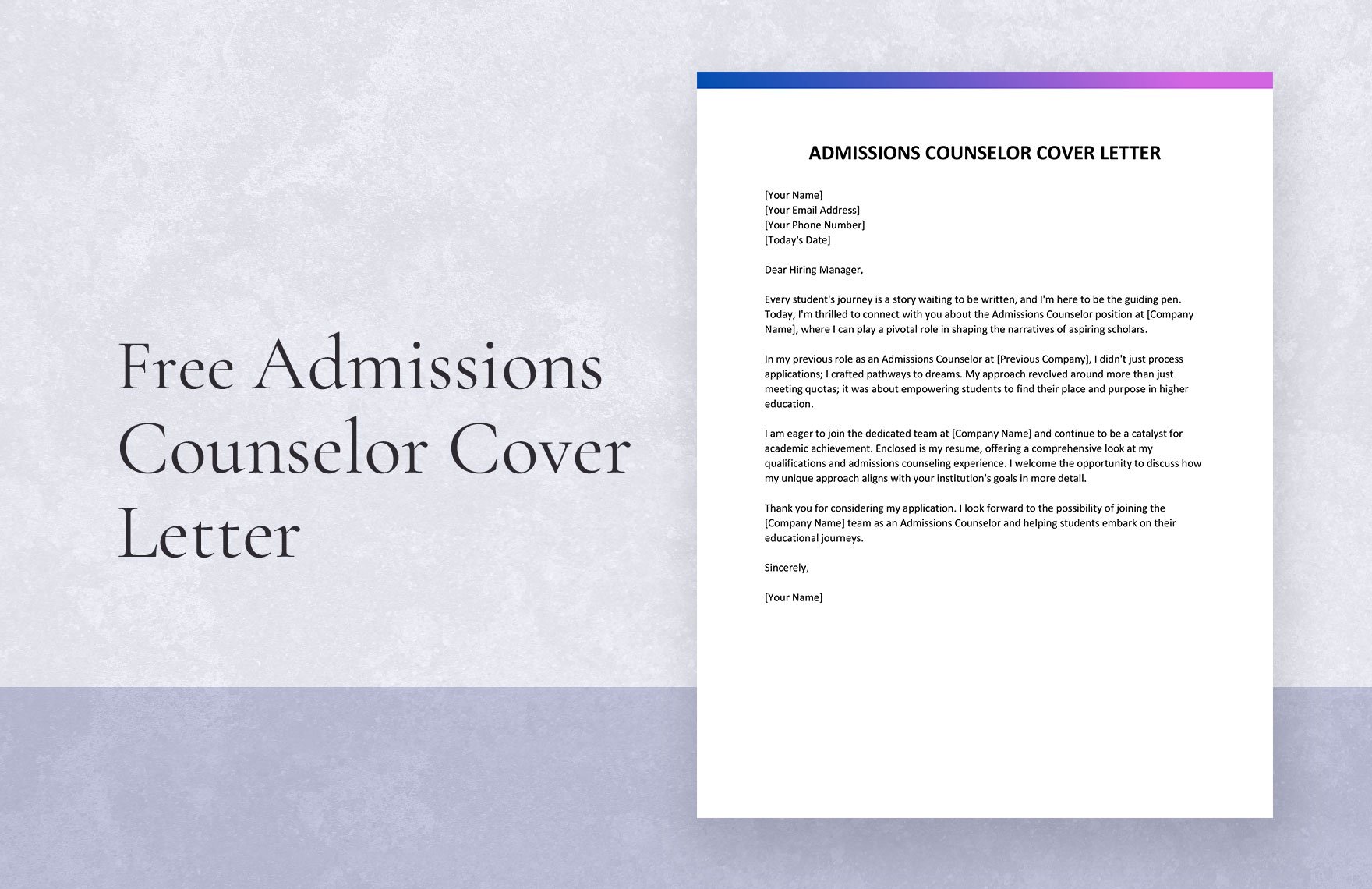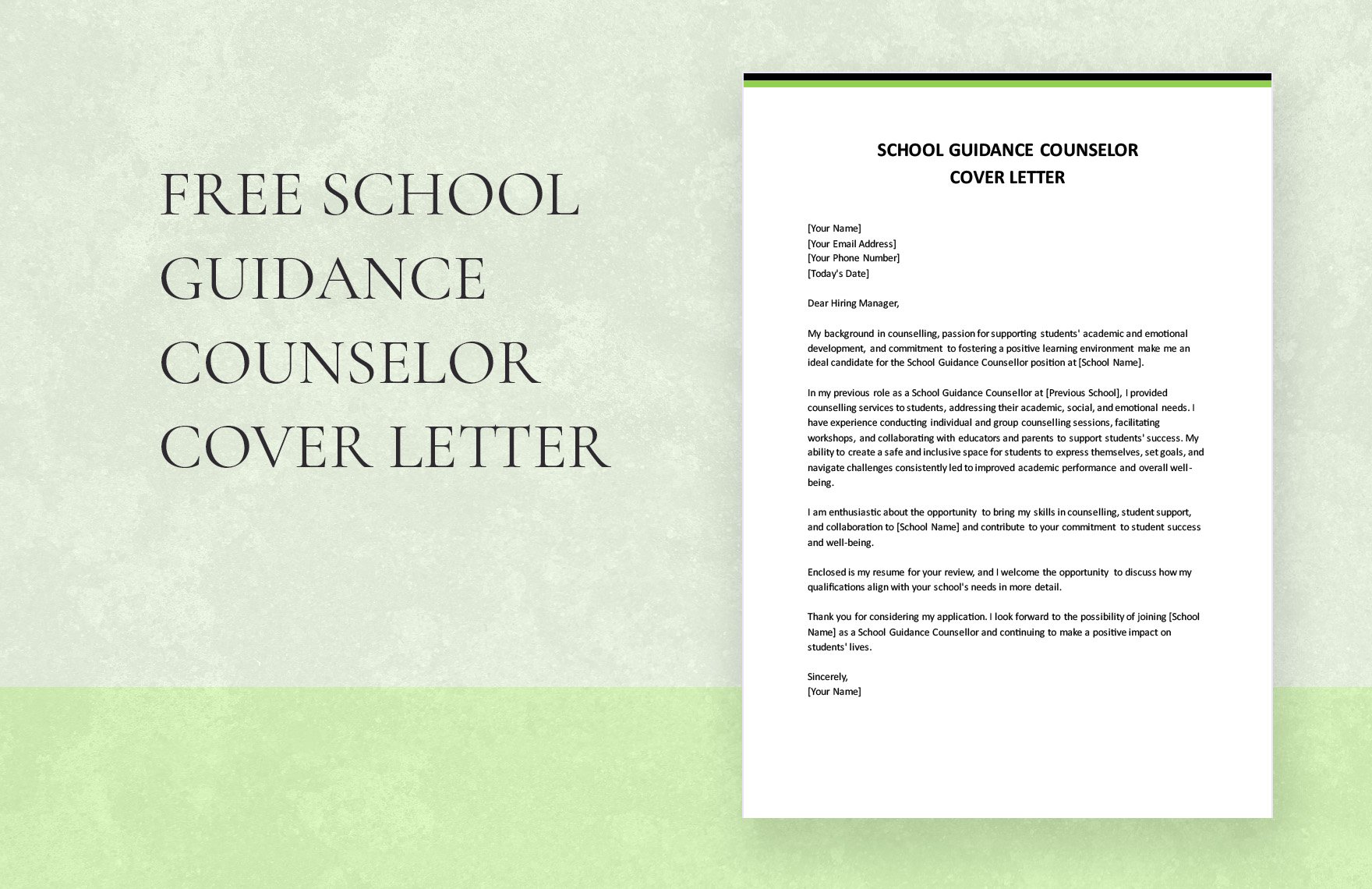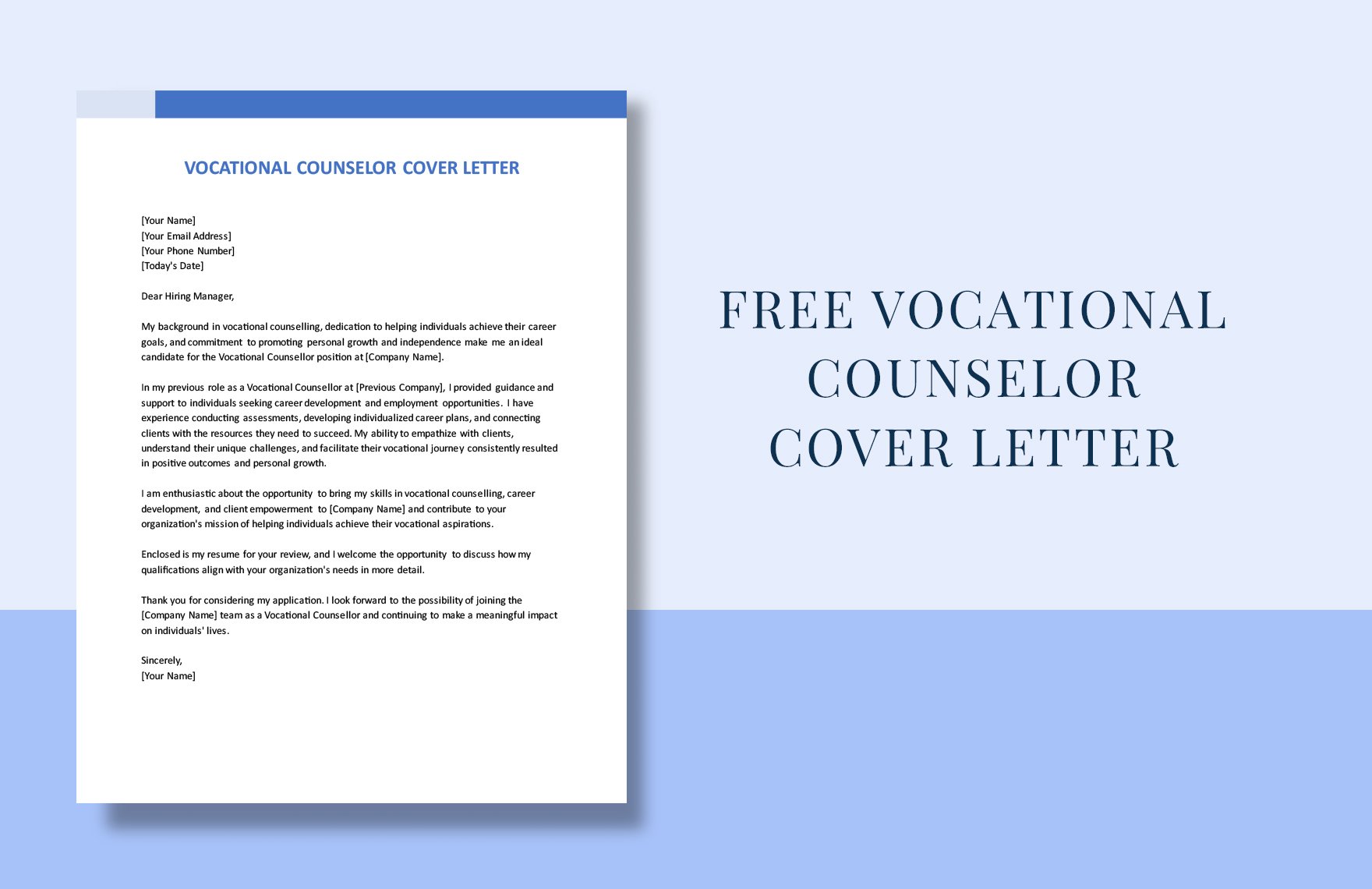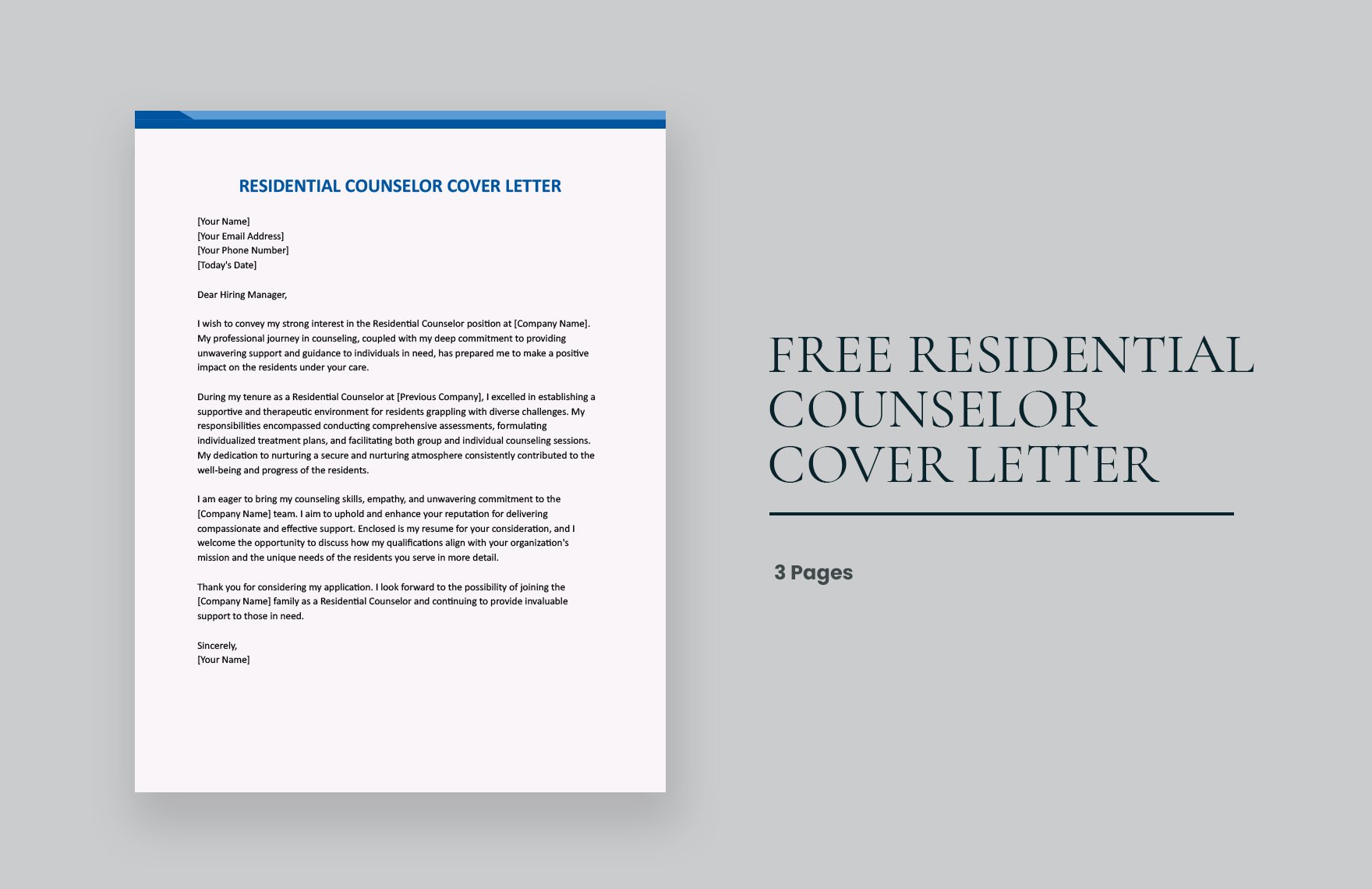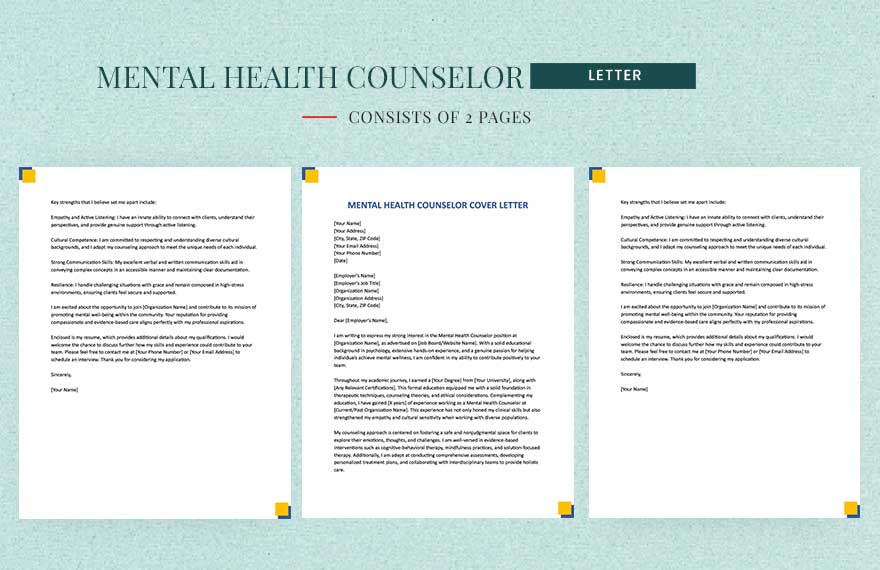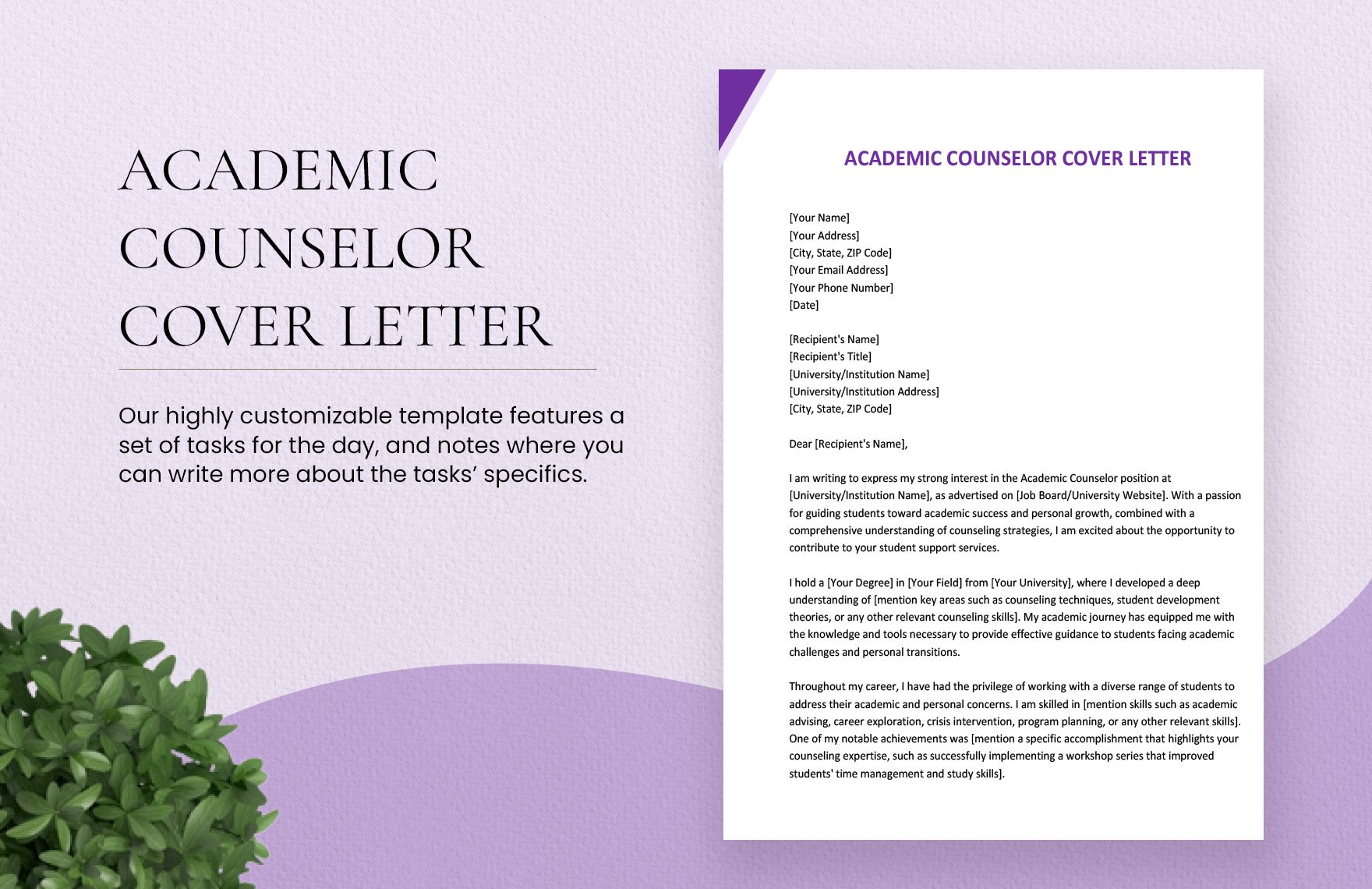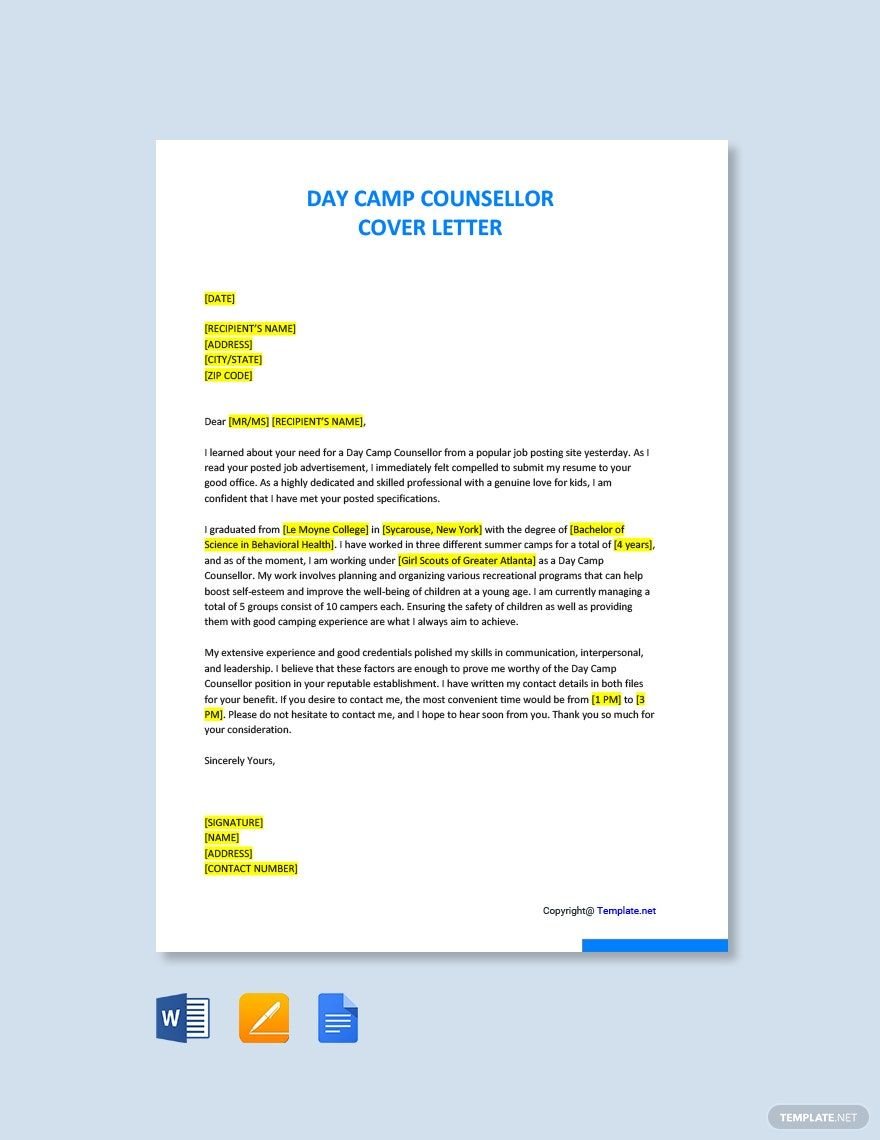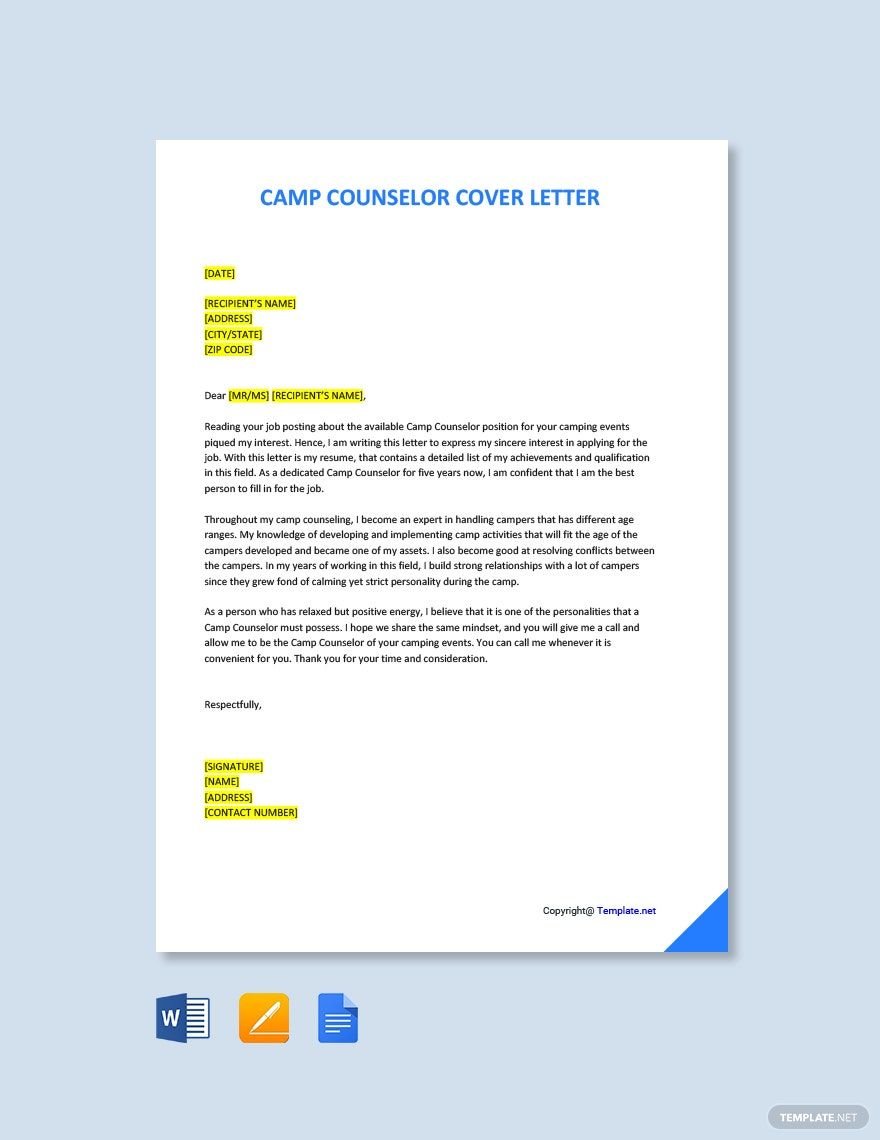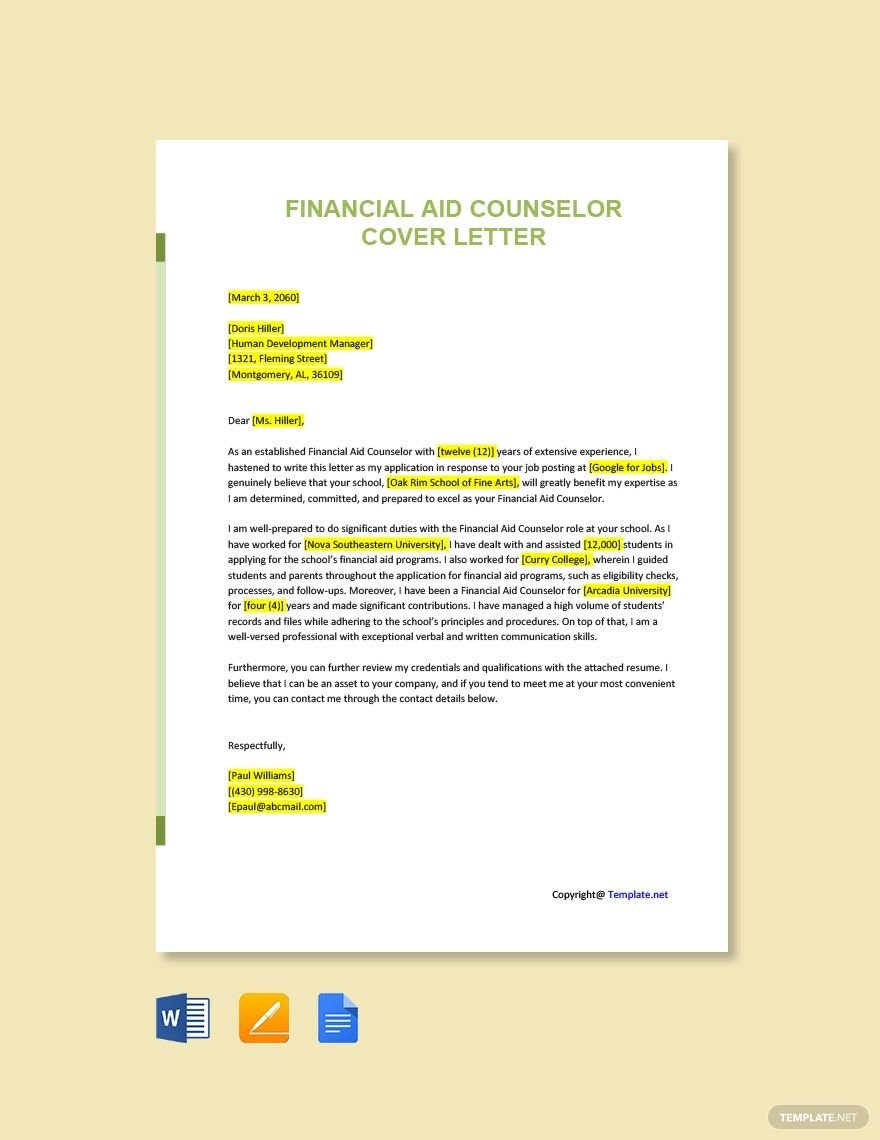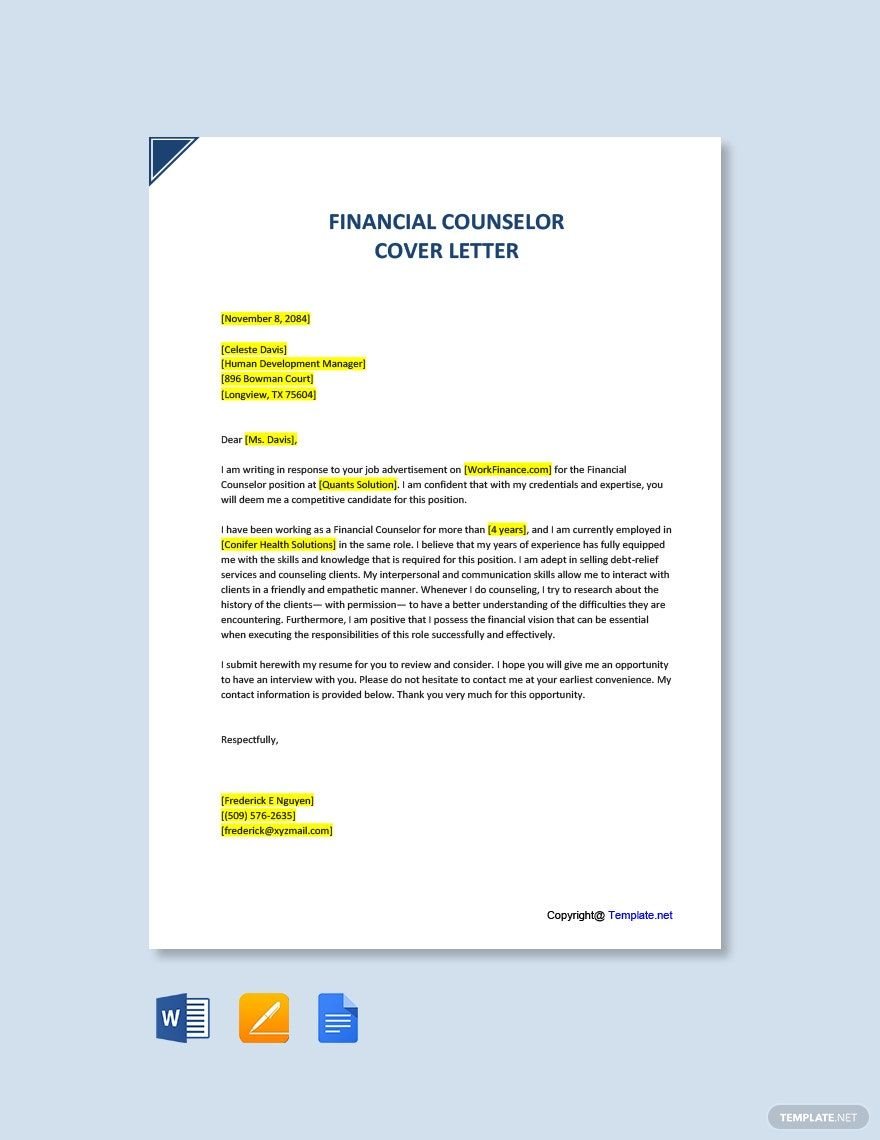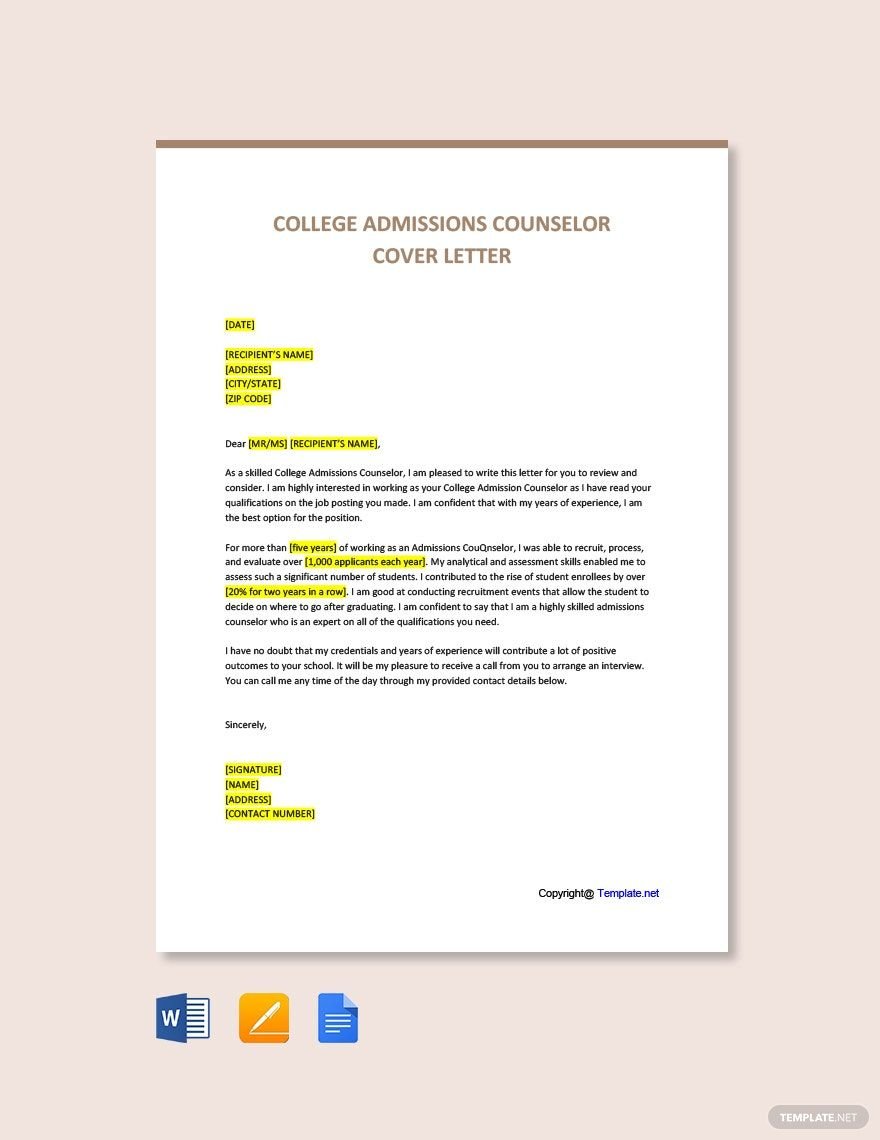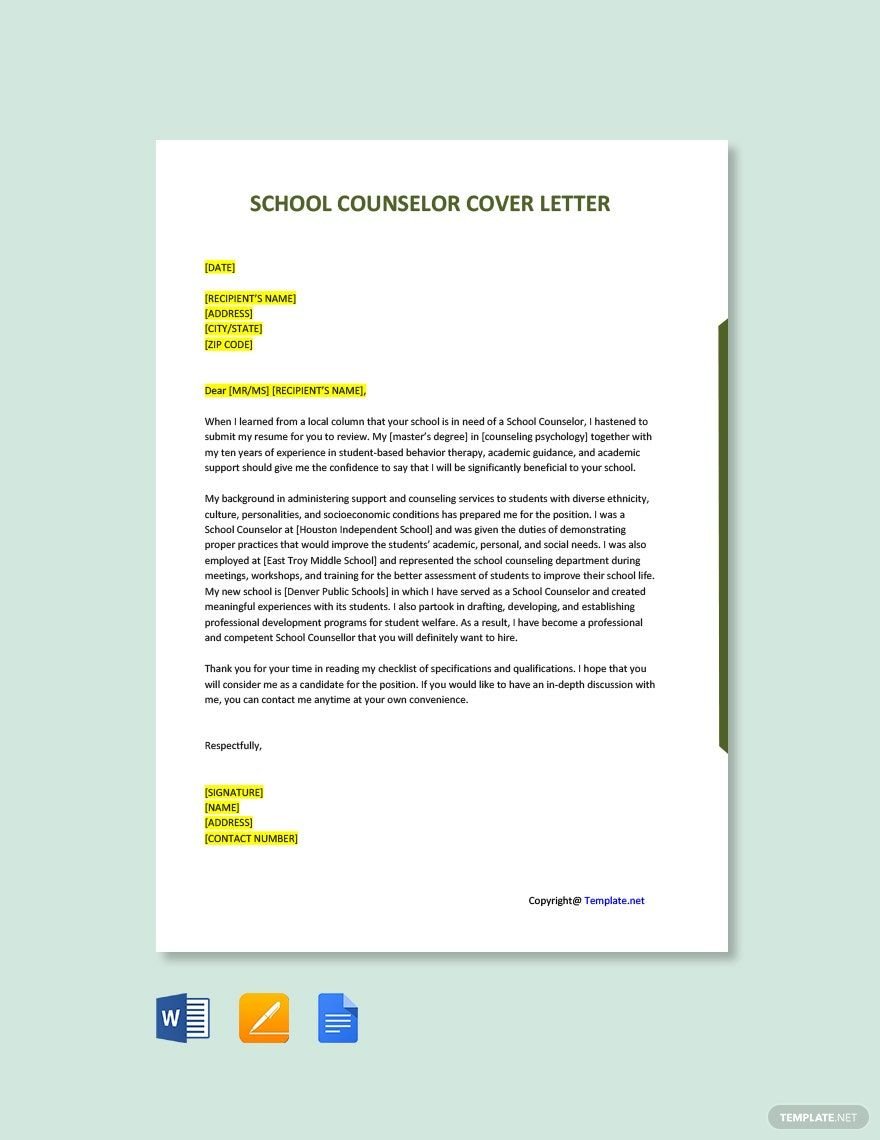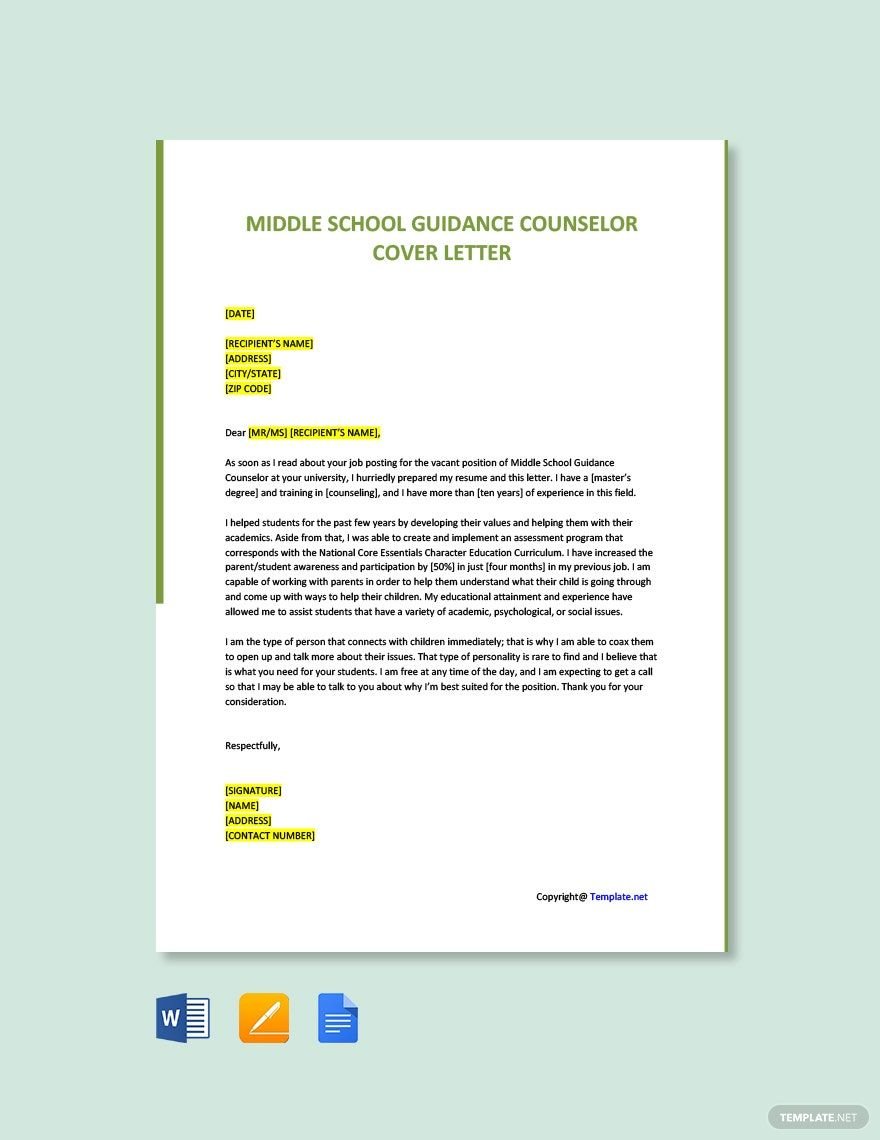Whether it's for guidance counseling, day camp counseling, or academic counseling, a counselor plays a major role in fostering guided environments for the people they handle. Because of this rising need, more schools and organizations are on the lookout for professional counselors. If you have the required skills and are up for the role, step up your game by submitting a well-written cover letter with your resume. With the help of our Counselor Cover Letter Templates, you can do that in no time. Highlight your experience and skills to increase your chances of getting hired. They're 100% customizable and ready for printing, download one today!
What Is a Counselor Cover Letter?
A counselor cover letter is a document that is submitted when someone wishes to fill a counselor position in an establishment or institution. This document contains the applicant’s credentials and contact information. Unlike basic resumes, cover letters are written in narrative form and will tell more about the applicant’s personality and professionalism.
How to Create a Counselor Cover Letter
Cover letters are considered formal business letters, which means it must also follow a formal writing style and format. Aside from this useful tip, we've written other reminders to help in composing your counselor cover letter.
1. Start Strong
Ideal cover letters are short. All of its required content should fit in a single sheet of paper. So, it is crucial to open the letter strongly to grab the attention of the reader. Keep in mind that sourcing specialists spend only spend little time to check cover letters and professional resumes.
2. Don't Run Around in Circles
It is also essential to be clear with your message. Relay your intention of submitting the letter directly. Creating an outline beforehand can help in organizing the content of the letter. It is best to start with your intention followed by credentials. Speaking of credentials, you can include your clinical internship or previous counseling jobs.
3. Be Positive
Employers appreciate and prefer applicants who show enthusiasm in working with the organization. It is best to adopt a positive tone in crafting the letter, especially in the closing remarks. In line with this, refrain from indicating skills that you do not have, such as, "Despite my lack of organizational skills," Regardless of its honesty, it will not sit well with the reader.
4. End with a Hopeful Note
Statements similar to "I hope to hear from you soon" or "I am excited to work with you" end the cover letter in a light-hearted but secure manner. It adds a tinge of confidence that a hiring manager will contact you soon because of the qualifications you've highlighted. When doing this, make sure not to overdo it.
